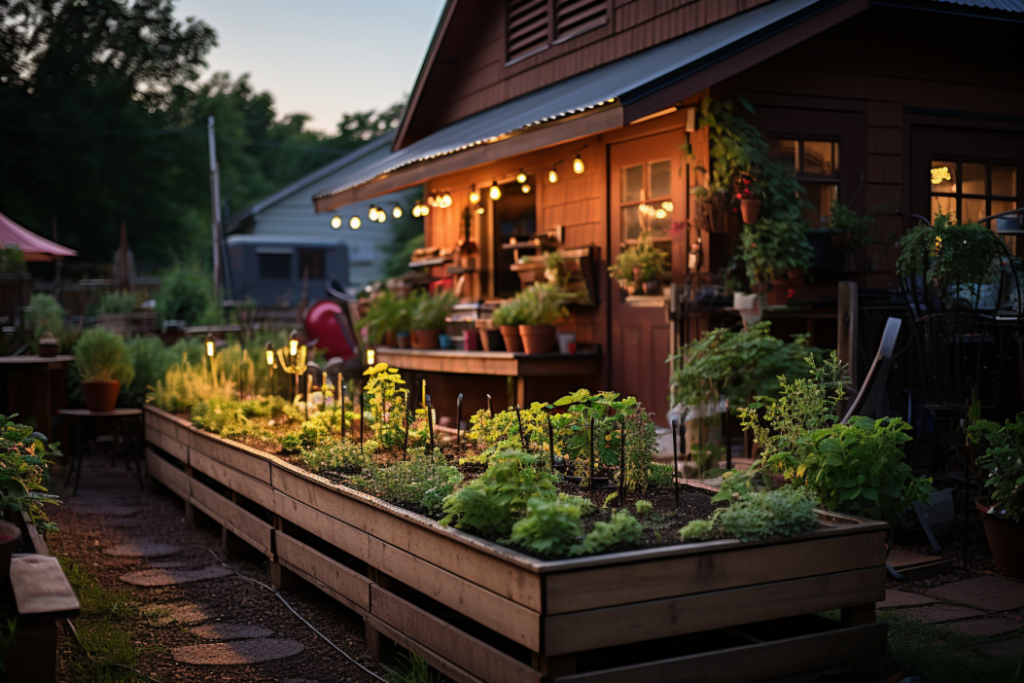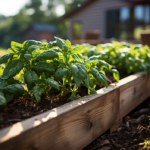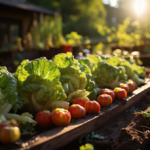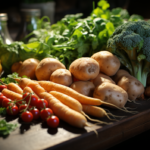Table of Contents
Hey there! Are you curious about sustainable agriculture and what you can do as a consumer to support it? Well, look no further! In this article, we’ll explore the importance of sustainable agriculture and provide easy-to-follow tips on how you, as a consumer, can make a difference. Sustainable agriculture not only benefits the environment, but also supports local communities and ensures that food is produced in a way that promotes animal welfare. So, whether you want to reduce your carbon footprint or simply want to make more informed choices when grocery shopping, read on to learn how you can support sustainable agriculture and make a positive impact.
Understand the Importance of Sustainable Agriculture
Sustainable agriculture is becoming increasingly important due to its positive impact on the environment and local communities. It is a farming practice that not only focuses on producing food but also aims to protect the land and natural resources. Here are some essential aspects to consider and understand about sustainable agriculture:
Conservation of Natural Resources
Sustainable agriculture promotes conservation of natural resources like soil, water, air, and biodiversity. Farmers practice conservation methods such as crop rotation to replenish soil nutrients and reduce soil erosion, use of cover crops to maintain soil health, and integrated pest management to reduce the use of chemicals.
Support Local Communities
Sustainable agriculture also benefits local communities by promoting the growth of local food systems. When you buy locally grown produce, you support local farmers and help to sustain their livelihoods. This directly impacts the local economy by creating jobs and supporting small businesses.
Animal Welfare
Sustainable agriculture also promotes animal welfare by ensuring that animals are raised in ethical conditions. This means reducing the use of antibiotics, growth hormones, and other harmful chemicals on livestock and providing them with humane living conditions.
Climate Change Mitigation
Sustainable agriculture also has the potential to reduce the impact of climate change. Practices such as no-till farming help to reduce carbon emissions from the soil and increase carbon sequestration, thus reducing the amount of carbon in the atmosphere.
Understanding the importance of sustainable agriculture is the first step towards supporting it as a consumer. By purchasing sustainably grown produce, you help to support local farmers, protect natural resources, and contribute to the fight against climate change.
Choose Local and Seasonal Produce
When it comes to supporting sustainable agriculture, the choices you make at the grocery store can have a big impact. One simple yet effective way to promote sustainable agriculture is by choosing local and seasonal produce. Here’s why.
Minimize the Carbon Footprint
Buying produce that is grown locally reduces the carbon footprint of your food. Instead of being shipped across the country or even overseas, locally grown produce travels a shorter distance to reach your plate. This means that fewer greenhouse gases are emitted during transportation, helping to reduce your carbon footprint.
Support the Local Economy
By choosing local produce, you’re also supporting local farmers and the economy. These farmers often rely on the sales of their produce to make a living, and when you choose to buy directly from them, you’re helping to support their business. This creates a unique opportunity for you to connect with your local food system, learn more about the food you’re eating, and meet the farmers who grow it.
Choose Seasonal Produce
Choosing seasonal produce is a complementary approach to supporting sustainable agriculture. It’s essential to obtain fresh, sustainable, and healthy food. Try to keep up with the seasonality of the crop, and choose seasonal produce whenever possible. Buying strawberries in January may seem like a luxurious treat, but it likely means that they were grown in a faraway country and shipped to your local grocery store. By choosing seasonal produce, you’re not only getting fresher food, but you’re also supporting local growers who work hard to bring their crops to market.
In summary, choosing local and seasonal produce may seem like a small act, but it can have a significant impact on the environment, economy, and community. Make the effort to get to know your local farmers and explore the options they offer. By doing so, you can help support sustainable agriculture and make a positive contribution to your community.
Buy Organic or Certified Labels
One of the easiest ways to support sustainable agriculture as a consumer is to choose food products that are certified organic or carry a sustainability label. Here’s why:
Organic agriculture is a method that follows strict regulations to use natural fertilizers, pest control methods, and avoid synthetic chemicals. When you buy organic produce, it means:
- The fruits and vegetables are grown and harvested without the use of synthetic chemicals, pesticides, or fertilizers.
- Organic farmers use practices that promote biodiversity, soil health, and conserve water.
- Organic animal products come from animals that are raised without the use of antibiotics, hormones, or other growth-promoting drugs.
Many food labels provide information about the product’s origin, farming practices, and certifications that assure sustainable production, including:
- USDA Organic: This certification ensures that food is produced without synthetic fertilizers, pesticides, or genetically modified organisms (GMOs).
- Fairtrade International: This certification ensures that the product was produced sustainably, benefits small-scale farmers, and ensures safe and healthy living facilities.
- Rainforest Alliance Certified: This certification ensures that the product meets the environmental, social, and economic standards, including improving farmers’ livelihoods, conserving biodiversity, and reducing carbon footprint.
Choosing food products with these labels is one way you can support sustainable agriculture as a consumer.
However, not all sustainable farmers can afford expensive certifications, so it’s essential to read more about their farming practices and ask your local farmers about their methods.
Additionally, if you can’t find organic, certified, or locally sourced products, don’t panic. You can still make a difference by opting for products with fewer packaging, buying food in bulk, and choosing plant-based sources of protein.
In conclusion, buying organic or certified products is one of the easiest ways to support sustainable agriculture from the comfort of your home. Remember to educate yourself about sustainable farming methods and ask questions about how your food is produced to make informed choices.
Reduce Food Waste and Compost at Home
Reducing food waste not only helps you save money but also helps limit the environmental impact of food production. Composting at home is an easy way to turn your food scraps into nutrient-rich soil that can be used for gardening or landscaping.
- Plan your meals and grocery shopping: Before grocery shopping, plan meals based on what you already have and what is in season. Avoid buying too much food that may go to waste.
- Store food properly: Proper storage helps keep food fresh for longer. Use reusable containers instead of disposable bags or plastic wrap.
- Use leftovers creatively: Be creative with leftovers and transform them into new meals. Use leftover vegetables to create a hearty soup or make a stir-fry with leftover rice.
- Compost at home: Composting reduces greenhouse gas emissions and saves landfill space. All you need is a compost bin and some brown and green matter (such as leaves, coffee grounds, and vegetable scraps). By composting at home, you can turn your food scraps into nutrient-rich soil for your garden.
Making small changes in your grocery shopping and eating habits can have a big impact on sustainable agriculture. By choosing local and seasonal produce, buying organic or certified labels, and reducing food waste, you can support sustainable agriculture and help preserve the health of our planet. Remember, every little step counts towards a greener future!
Conclusion
In conclusion, supporting sustainable agriculture is important for the health of our planet and future generations. As consumers, we have the power to make a difference by making more informed choices when it comes to our food. Whether it’s choosing local and seasonal produce, buying organic or certified labels, or reducing food waste and composting at home, every little action can have a positive impact. By embracing sustainable agriculture, we not only support the environment and local communities, but also contribute to animal welfare and our own health. So, let’s do our part and make sustainable choices whenever possible to help build a healthier and more sustainable future.









